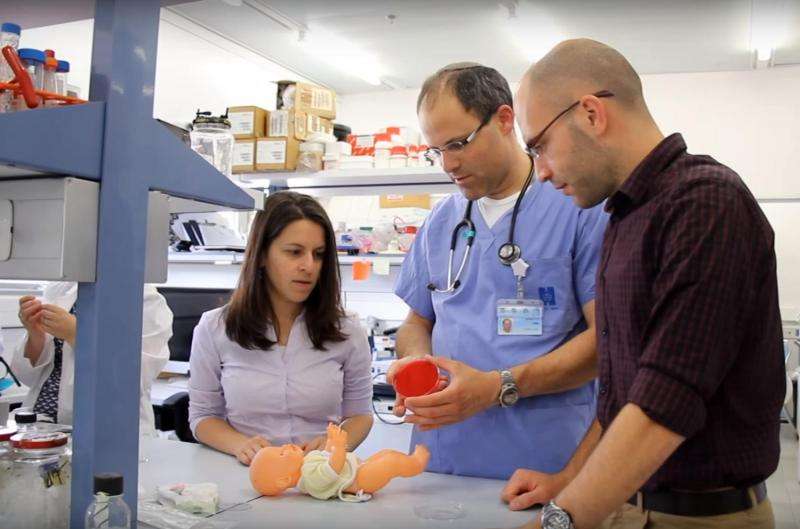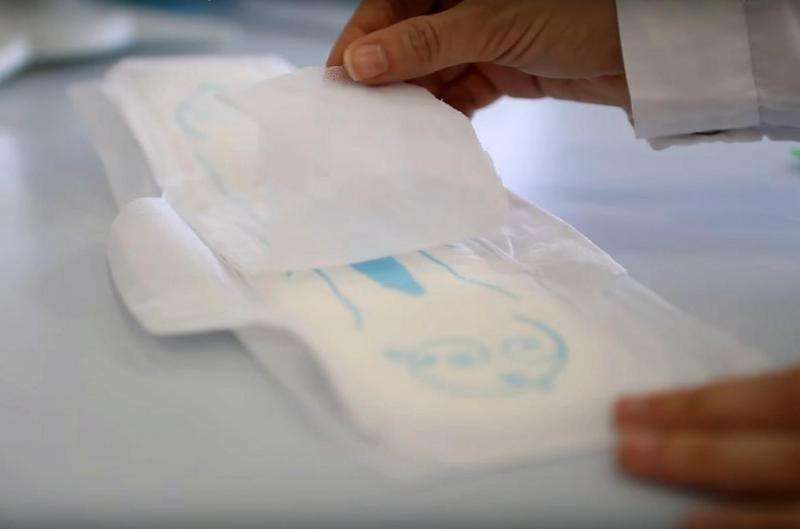Urinary Tract Infection is a common medical condition affecting between 8 and 10 million individuals in the United States every year. The infection is difficult to diagnose in infants and elderly patients, as the symptoms are vague and non-specific.
Diagnosis is complicated by difficulties in collecting sterile urine samples from the segments of the population most prone to Urinary Tract Infection. While sterile urine samples can be readily collected in adults using simple plastic cups, urine collections in infants and bedridden patients relies on adhesive plastic bags that are routinely contaminated by skin-borne bacteria or fecal matter.
"Contamination is so common that physicians often needlessly prescribe broad-spectrum antibiotics prophylactically," increasing the risk of developing antibiotic resistant bacteria," said Dr. Amir Orlev.
Orlev was part of a multidisciplinary group that set out solve this problem as part of the BioDesign: Medical Innovation program, created by The Hebrew University of Jerusalem and its affiliated Hadassah Medical Center.
He partnered with engineering students Eliezer Keinan and Nitzan Guberman, who developed UCap, a non-invasive microfiber urine-collection pad.
The innovative pad contains bundles of hollow glass microfibers that quickly draw urine samples from absorptive pads in seconds, while the remainder of the urine is absorbed by a polymer matrix.
Hebrew University Biodesign students develop a nanotechnology based urine collection pad, promising the simple collection of sterile urine samples from infants, toddlers, and elderly patients.
As the urine is rapidly collected, cross-contamination of the urine sample by contact with skin or fecal matter is prevented. The low-cost but highly effective solution can save time and money in the collection of sterile samples from patients prone to Urinary Tract Infection.
"More than 11 million urine tests are carried out each year in infants and elderly patients," said Itai Monnickendam and Simi Hinden, MBA students working with the group as part of The Hebrew University's BioDesign program. "This presents a market of $100 million annually in the United States alone."
Provided by Hebrew University of Jerusalem




















